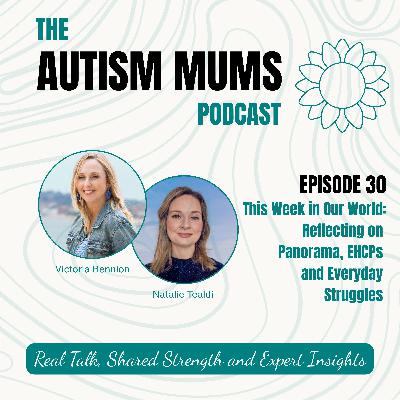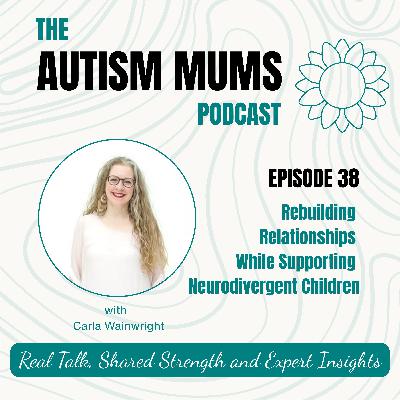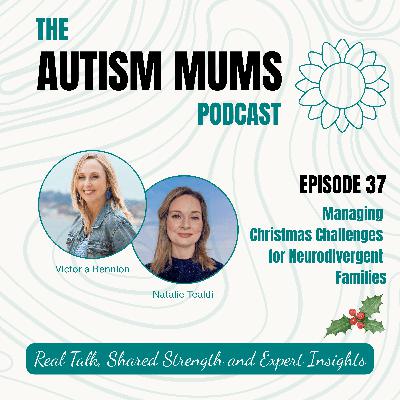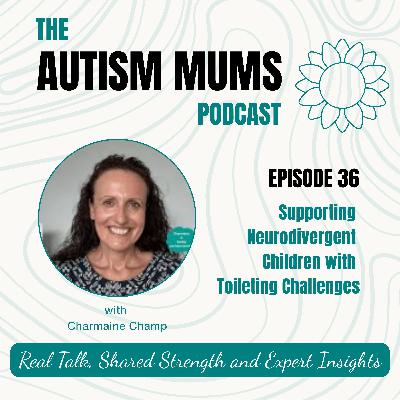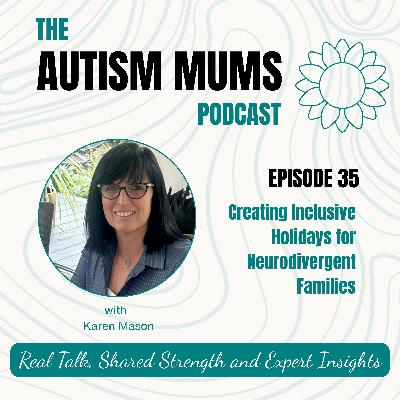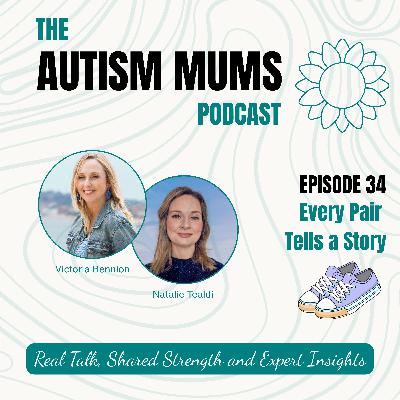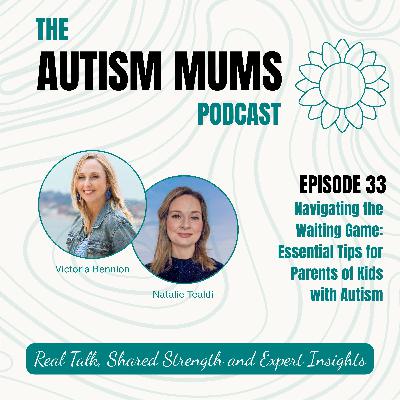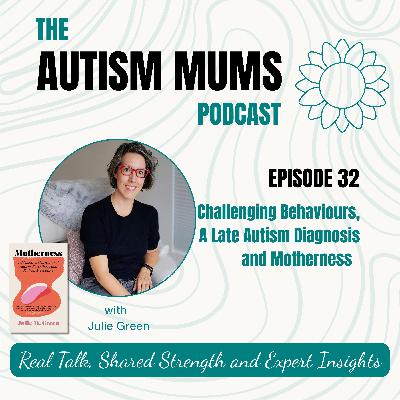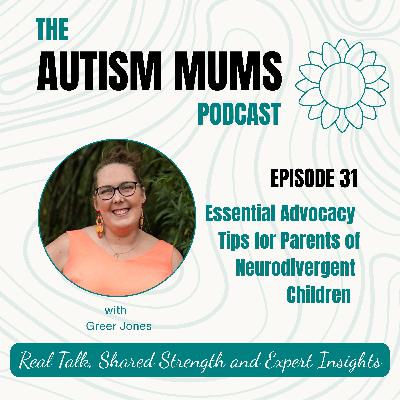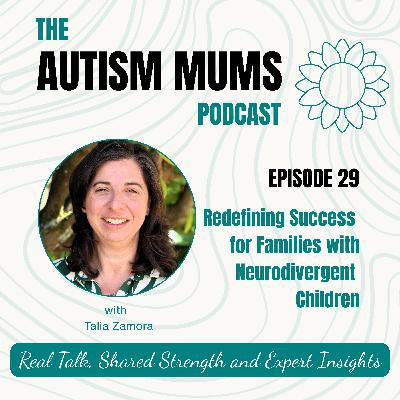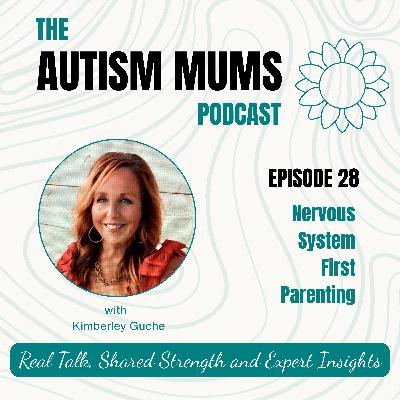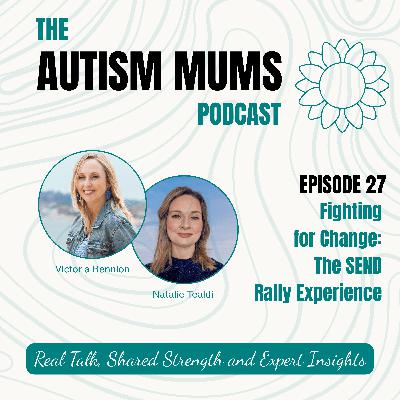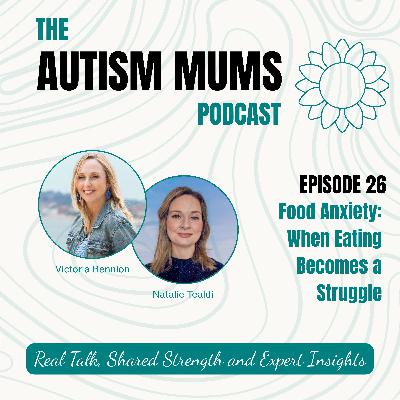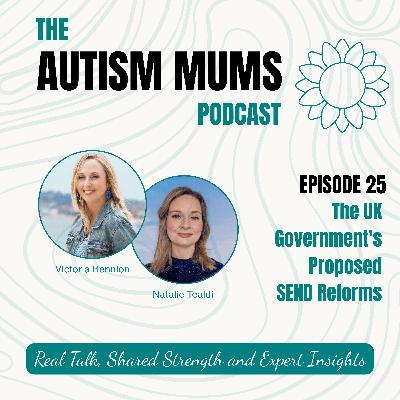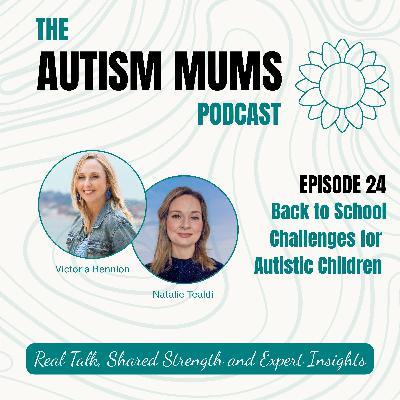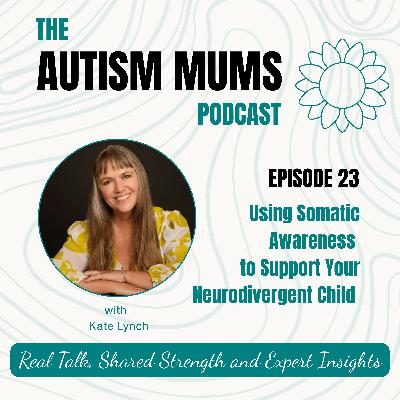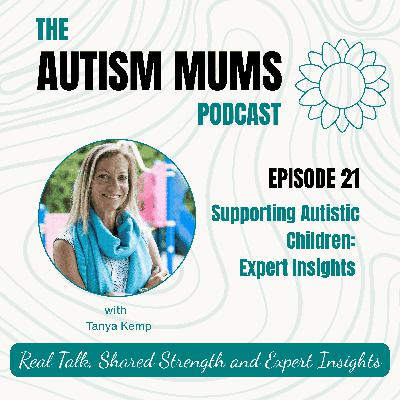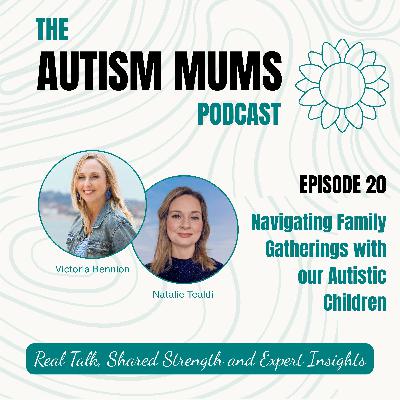This Week in Our World: Reflecting on Panorama, EHCPs and Everyday Struggles
Description
In this week's episode of The Autism Mums Podcast we're reflecting on the Panorama documentary, EHCPs and everyday struggles from socks to lunch boxes.
Key Takeaways
The reality behind EHCPs – why the process can be emotionally draining, time-consuming, and often leaves families feeling powerless.
When inclusion isn’t inclusion – the difference between being in school and actually being supported to thrive.
The ripple effect of sensory struggles – how something as small as socks or a change in routine can unravel a whole morning.
Food battles and 'safe foods' – understanding why eating can be so complex for autistic children and why parents shouldn’t face judgment for feeding what works.
Navigating seasonal changes – how weather, clothing, and sensory shifts can bring new challenges for children who rely on predictability.
The need for empathy over judgment – whether it’s food, clothes, or school attendance, understanding should always come before criticism.
Mentioned in This Episode
BBC Panorama Documentary: Autism, School and Families on the Edge presented by Kellie Bright
EHCP (Education, Health and Care Plans) - learn more here
ARFID and sensory-based eating challenges - learn more here
Connect with The Autism Mums
Website – https://theautismmums.com/
Follow us on Instagram https://www.instagram.com/theautismmums
Follow us on TikTok https://www.tiktok.com/@theautismmums
Follow us on Facebook https://www.facebook.com/theautismmums
Transcript
This Week in Our World:
Reflecting on Panorama, EHCPs and Everyday Struggles [00:00:00 ]
Victoria Bennion:
This week we watched Kelly Bright's Panorama documentary called Autism School
and Families on the Edge, and it was really interesting watching. So we wanted
to take today to reflect on the program and chat about things in general that
have come up for us and our children
Victoria Bennion: .
so what did you think about the program? Nat.
Natalie Tealdi: I
thought it was really great to give. Exposure about the issues of EHCPs. I
mean, it was largely based around EHCPs, wasn't it? And it definitely brought
back lots of memories. I think it's that, that place where you are at, where
you don't really know much about what's going on and you're kind of trying to
work out how to support your child.
Victoria Bennion:
Yeah.
Natalie Tealdi: the
right environment is for them, getting them the right support, not really
knowing what that support is or what even are the options for support.
Victoria Bennion:
That's right. It's a really stressful time. And I think that it, hopefully, it
highlighted that it's quite a lengthy process and that it requires quite a lot
of you as [00:01:00 ] parents and carers being
on it with all the dates. And then even when you get a yes, if you get a yes at
certain points, like, yes, we agree to assess your child, it's, you're not
necessarily then going to get the plan that your child needs.
Victoria Bennion: So
with the family there? And , it had named mainstream. That was, that was
totally familiar to me. That's what happened with my first child going through
the process and he was barely attending school. And it brought back for me
those feelings, those memories of like, oh my God, what, we've just been
through all this.
Victoria Bennion: And
you are saying, well, they basically said good luck at middle school. It's like
he can't even get into first school. How have you written a whole plan and put
mainstream? So I did really feel for them. I think it was a really accurate
depiction of the process
Natalie Tealdi: Yeah,
I mean, very similar for us too. , It's clearly the setting isn't working and
you do all the paperwork and all the fighting and all the meetings
Victoria Bennion: all
the assessments.
Natalie Tealdi: then
it comes back with the same place that they're not coping at. I mean, that [00:02:00 ] doesn't even make any sense. It is just so
frustrating,
Victoria Bennion: ,
It's a very tiring process.
Natalie Tealdi: And
you can feel really powerless. I think that's something they highlighted in the
documentary 'cause. Yeah, you have to learn about all the processes and the
laws and what you're entitled to, and it's exhausting.
Victoria Bennion: It
is exhausting, and especially on top of when you're trying to look after your
children charge the EHCP for everything is not well, otherwise you wouldn't be
doing it. So you've got that on top of everything. And then holding the local
authority to their deadlines is my experience of, Hey, it's the X date.
Victoria Bennion: Is
there any news on this yet?
Natalie Tealdi:
exactly. You can't just sort of hand it over to them and expect it all to run
smoothly into time. You have to be there nudging them.
Victoria Bennion:
Yeah, it's horrible actually. It's extra stress that parents don't need. So I
thought that was depicted really well. There was one, one thing that really
struck me as being potentially really divisive. I [00:03:00 ]
don't know if it struck you too, but it was when she was speaking to that
counselor.
Victoria Bennion:
They were referencing the amount of money that's needed to support our
children, and she said something along the lines of like, this is money that.
Natalie Tealdi: I
know what you're gonna say.
Victoria Bennion: Is
now not going to road repairs. It was something like that, wasn't it? And I
thought, Ooh, , that felt to me like quite deliberately divisive. Like, Hey, ,
these send families are taking all the money. That's why there's potholes in
the road. And it was almost like pitting. Sections of society against each
Victoria Bennion:
other.
Natalie Tealdi: That
is exactly how I felt listening to that as well. I thought, hang on a minute,
what? That could definitely create some interesting situations.
Victoria Bennion: And
I think it's probably deliberately designed to, dad was saying there was
something he read about parents wanting EHCPs to get their children more exam
time or something for GCSEs, [00:04:00 ] and I
went, what , I dunno about you, but certainly at the point that we're going for
an EHCP GCSEs are just not even in the mind.
Victoria Bennion:
It's getting your child into a setting that's appropriate. I mean, I wasn't
even thinking about GCSEs when my child was eight.
Natalie Tealdi:
Quality of life
Victoria Bennion:
yeah, exactly. You don't want them to be in this terrible state that they're
in, and you want the best for them. It's certainly not in my experience of
anybody I've met either that that's on their mind.
Natalie Tealdi: Where
does that come from? I don't know anyone like that. , It is more that people
are worried about their child's mental health and, the state of their health
generally, and being able to be in the world and cope in the world and have a
bright future. 'cause they still should have a
Natalie Tealdi:
bright future.
Victoria Bennion:
Yeah.
Natalie Tealdi: And I
think one thing that came up for me was when there was the mum, I think the
daughter at mum actually, when her child did manage to go into school, and they
were all celebrating the fact that she got to go in that day. But I just [00:05:00 ] thought, but how did that day go? Because
I was just remembering when my child went into school, I would be by my phone
trying to work and sometimes it would ring and it would be the school saying
he's not coping and he needs picking up.
Natalie Tealdi: And I
was thinking, how did she feel that day and how, and how was it when her child
got home? Was she okay or was it difficult that

